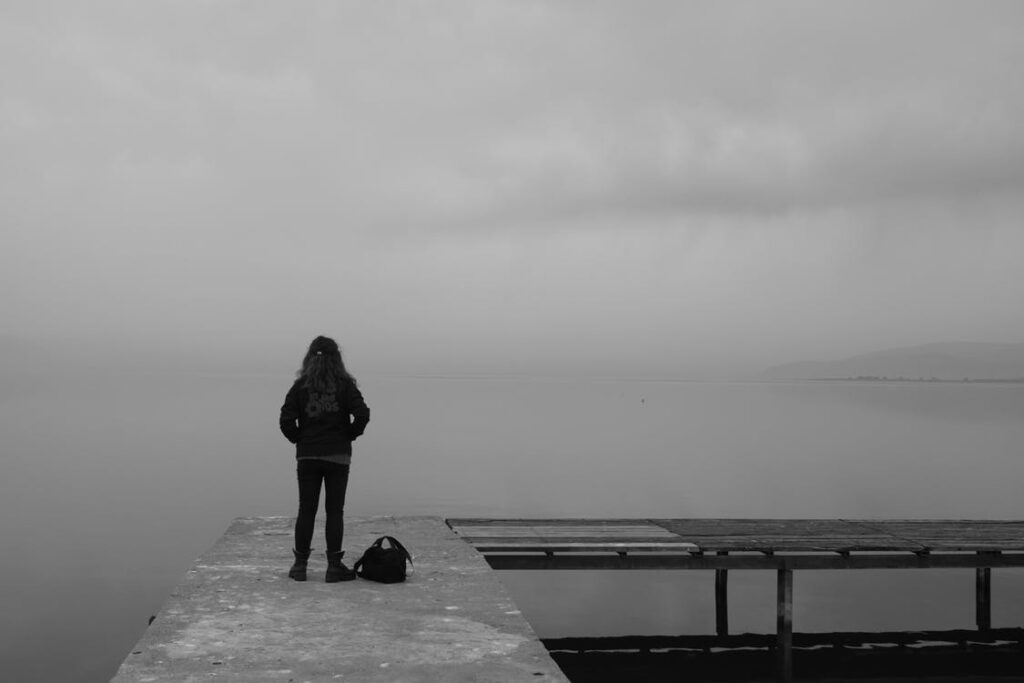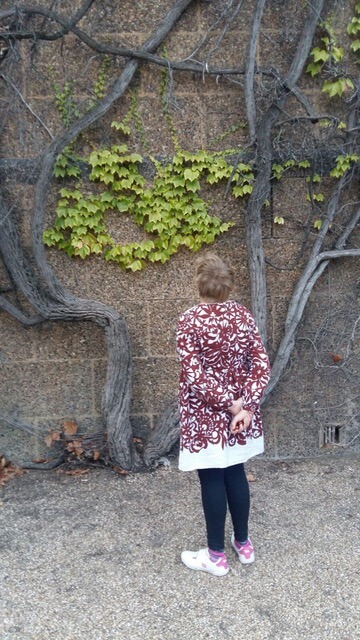My Daughter; Living Her Own Life

Tess came into our life in March 1999. She is part of a big family that lived in Africa.
In 1999, Tess’s mum and dad were killed. The circumstances are not important. What is important is that in the blink of an eye, Tess lost her mum and dad and, after coming to live with us in England a few months later, her home, school, friends and country. Her world.
Tess was 12 at the time. The loss was doubly confusing because she wasn’t able to comprehend what had happened. Where had mum and dad gone? Where was her home and breakfast. Where was this place called ‘ heaven’ that her parents had gone too? Why couldn’t she go there?
Tess has fairly severe autism and moderate to severe learning difficulties. She has no ‘Theory of Mind’. She can’t read or write, she can’t infer and she can’t generalize.
She withdrew into a world full of fear, anxiety and pain, a monosyllabic world of prolonged inactivity, broken by nightmares and bouts of great distress and self-harm, where the only real comforts were food, prolonged thumb-sucking and repetitive music. It was hard for her sisters and for us. But it must have been agonizing for Tess. Loss was and still is a painful thread that runs through her life.
When she came to us, I had recently taken early retirement from my newspaper and my wife worked part-time so we were able to devote ourselves to the girls. We were lucky enough to live on a lovely property with space in the English countryside surrounded by fields and woods. We made room for them in our lives. They became our family.
But Tess hadn’t been properly diagnosed because where she lived the expertise just wasn’t there.
So, we set out to find out about Tess. Who was she really? What made her tick? Why was she so ‘challenging’? We figured if we could crack the code we might be able to give her the support and eventually the life she needed.
We had one advantage over her natural parents. Although we had come to love her to bits, she’s very funny, mischievous, stubborn and occasionally a total pain, we were able to see her from a distance.
There were times when she’d scream the house down for hours on end. But we were able to hold our emotions in check. Our heads ruled our hearts…just.
My light bulb moment came when I stumbled across Temple Grandin’s Thinking in Pictures as part of a voracious reading programme. I knew nothing about autism, other than what I’d seen predictably in Rain Man. What Grandin said made perfect sense. We have a great deal to thank the grand old lady of autism.
But it also posed a huge challenge. The United Kingdom may be the founder of the Welfare State but state provisions for kids with learning disabilities and autism are sparse, over-stretched and underfunded. And how do you communicate with someone who can’t? How do you look into their soul?
So, we set out on a journey with Tess in tow. Actually, as we were to discover later, much later, Tess was leading us…not the other way round.
We decided to pull her out of school and set up a Home Education programme. We wanted to do two things: get to know her close up and then find the right path for her.
Tess’s home programme was run with a small team of volunteers, under our direct, daily supervision by a delightful, committed psychology graduate from Oxford University.
We took Tess to America a couple of times to attend specialist autism-centered programmes.
First the Son-Rise programme which, if I’m frank, I found oppressive and a bit cult-like. And then to a wonderful man in Florida called Steven Wertz who founded and runs Growing Minds. Really thoughtful man with great humanity and experience.
One day we were sitting with friends in their yard after a tough day, nursing a beer. The sun was setting. So were we. We were beat.
Steven turned to us and said “You know what guys? If you’re not getting the right answer from Tess it’s because you’re not asking the right question”. Another light bulb moment.
Today, 18 years on Tess lives in a wonderful Camphill community.
At first our family was torn about this. It felt a little bit like placing in her in an institution. Why couldn’t she live with us or her sisters? Would she experience a loss of freedom?
The decision was taken after several years of trial and error and talking to pretty much everyone in the family and our local social care providers and a whole range of people.
And it boiled down to this…
Tess needs a life, her own life, the richest, fullest life possible life. She needs friends. She needs meaningful work. She needs a place of her own. She needs to belong and she needs to contribute. That, to me, is the definition of liberty and citizenship.
I shall never forget one day she and one of her sisters were rough-housing and Tess said “I wish I was as clever as you”. It was a heartbreaking moment but she was telling us something.
Were she to live with us, or anyone else in the family, she would become utterly dependent on us on and on carers who would come in most days for a few hours to take her out. She would experience loneliness and isolation.
What Tess and people with intellectual challenges need is a life not a service.
Tess now lives in a beautiful community on an estate with comfortable houses, workshops, land care facilities, music, and culture. She has friends. She travels. She goes to the movies and to the pub. She’s content.
Of course she is still Tess. She still throws the occasional wobbler, she still sometimes retreats into her herself and while she has made huge strides in her ability to communicate and socialise she remains, well, essentially someone with autism.
You just have to keep trucking, listening and responding. We don’t treat her any differently than others in the family, beyond making allowances for her impairments, we don’t patronise her and we don’t treat her like a victim.
We celebrate her beautiful, mysterious mind and we make sure she doesn’t pig out on chocolate.
I don’t know what the future holds for Tess. What I do know is that she is living in a community, as an equal, with people who love and respect her and who have the skills and the empathy to bring the best out of her.
I’m not sure how much knowing about autism or learning disability has really helped. What has made a difference is knowing Tess. It’s been an extraordinary journey full of joy, heartbreak and fulfillment.
And that, for now, is enough.

Tess
Written by, Alain Catzeflis
Alain is passionate about social justice, his family, his dog, traveling to remote parts of the world and flying small planes. He is a retired Financial Times journalist. Alain runs the social media platforms of the Alliance for Camphill, a group in the UK who campaign for the right of people with intellectual challenges and autism to live as they choose and for the values of Camphill communities that care for them. You can learn more at The Camphill Association of North America and at https://www.facebook.com/allianceforcamphill/
Interested in writing for Finding Cooper’s Voice? LEARN MORE
Finding Cooper’s Voice is a safe, humorous, caring and honest place where you can celebrate the unique challenges of parenting a special needs child. Because you’re never alone in the struggles you face. And once you find your people, your allies, your village….all the challenges and struggles will seem just a little bit easier. Welcome to our journey. You can also follow us on Facebook and subscribe to our newsletter.

